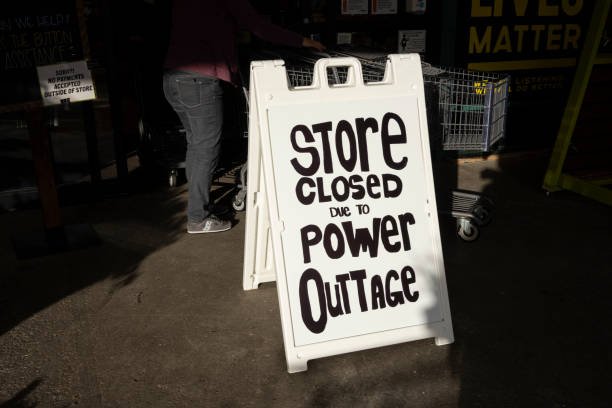Effects of Load Shedding in South Africa Essay Guide: Load shedding, a term all too familiar to South Africans, refers to the deliberate interruption of electricity supply to various areas as a last resort to prevent the collapse of the power system. This practice has become increasingly prevalent in South Africa due to the inability of the national power utility, Eskom, to meet the country’s electricity demands. In this essay guide, we will delve into the various effects load shedding has on South Africa, ranging from economic consequences to social implications and potential solutions.
Effects of Load Shedding in South Africa
Economic Consequences
Load shedding has a profound impact on the South African economy. The consequences include:
a) Loss of Productivity: Businesses experience significant losses in productivity due to load shedding. The intermittent power supply hinders the ability to operate efficiently and fulfill orders in a timely manner.
b) Decreased Foreign Investment: The unreliable power supply deters foreign investors, which negatively impacts the nation’s economic growth and job creation.
c) Increased Cost of Goods and Services: With businesses having to rely on costly alternative power sources, such as generators, the cost of production increases. This leads to an increase in the prices of goods and services.
Social Implications
The effects of load shedding extend beyond the economic sphere, impacting the daily lives of South Africans:
a) Disrupted Education: Load shedding affects educational institutions, interrupting classes and hampering students’ learning experiences.
b) Health and Safety Concerns: Hospitals and other healthcare facilities face challenges in maintaining proper care for patients, while crime rates can also increase due to inadequate lighting and security systems in the dark.
c) Inconvenience and Stress: Load shedding disrupts daily routines, causing frustration and stress among citizens as they struggle to cope with the unpredictability of power outages.
Environmental Impact
Load shedding contributes to environmental concerns, as individuals and businesses turn to alternative power sources:
a) Increased Carbon Emissions: The use of diesel generators as a backup power source results in higher carbon emissions, which exacerbates climate change and air pollution.
b) Depletion of Natural Resources: The reliance on non-renewable energy sources, such as diesel and coal, for backup power depletes the country’s natural resources and further damages the environment.
Potential Solutions
Addressing the issue of load shedding in South Africa requires both short-term and long-term strategies:
a) Expanding and Diversifying Energy Sources: Investing in alternative, renewable energy sources, such as solar and wind power, can help reduce the country’s reliance on an overburdened power grid.
b) Improving Infrastructure: Upgrading and maintaining the existing power infrastructure will increase its efficiency and capacity, reducing the need for load shedding.
c) Encouraging Energy Efficiency: Promoting energy conservation practices and implementing energy-efficient technologies can help reduce overall energy consumption.
d) Public-Private Partnerships: Collaborating with the private sector to develop and maintain power infrastructure can help address some of the challenges facing the public utility.
How to choose topics related to the Effects of Load Shedding in South Africa
When choosing a topic for your load-shedding essay, consider the following:
- Your area of interest: What aspect of load shedding in South Africa interests you the most?
- Relevance: Is the topic you are choosing relevant to the current situation in South Africa?
- Availability of information: Is there enough information available on your chosen topic to write a well-researched essay?
- Uniqueness: Is your topic unique and original?
List of Topics:
- The economic impact of load shedding in South Africa
- Load shedding and the environment: the effects of carbon emissions
- Load shedding and education: how it affects students’ learning
- Load shedding and crime: the correlation between power outages and crime rates
- The effects of load shedding on the mining industry in South Africa
- Load shedding and healthcare: how it affects the healthcare system in South Africa
- The psychological effects of load shedding on South Africans
- The impact of load shedding on small businesses in South Africa
- The role of renewable energy in reducing load shedding in South Africa
- Load shedding and water scarcity: the impact on water supply in South Africa
- The effects of load shedding on South Africa’s tourism industry
- The impact of load shedding on South Africa’s industrial sector
- The role of government in managing load shedding in South Africa
- The impact of load shedding on South Africa’s international relations
- The effects of load shedding on the telecommunications industry in South Africa
- Load shedding and gender-based violence: the link between power outages and violence against women
- The impact of load shedding on South Africa’s agricultural sector
- Load shedding and food security: the effects of power outages on food production and distribution
- The effects of load shedding on South Africa’s transportation industry
- Load shedding and the digital divide: the impact on access to the internet and technology
- The impact of load shedding on South Africa’s informal sector
- Load shedding and household energy consumption: the effects on electricity bills
- The impact of load shedding on South Africa’s entertainment industry
- Load shedding and the manufacturing industry: the impact on production and supply chain
- The effects of load shedding on South Africa’s real estate industry
- Load shedding and the retail sector: the impact on consumer spending
- The impact of load shedding on South Africa’s stock market
- Load shedding and air pollution: the effects on air quality in South Africa
- The impact of load shedding on South Africa’s renewable energy goals
- Load shedding and the gig economy: the impact on freelance workers in South Africa.
Video: Impact of load shedding on businesses
These topics are not exhaustive, and you can develop them further based on your interest and research. Remember to choose a topic that is relevant, unique, and has enough information to support your argument.
Load shedding in South Africa has far-reaching consequences that touch everyaspect of society. From economic challenges to social implications and environmental concerns, the effects of this crisis are pervasive and complex. Addressing load shedding requires a multifaceted approach that includes investing in alternative energy sources, improving existing infrastructure, promoting energy efficiency, and fostering public-private partnerships. By acknowledging and addressing these challenges head-on, South Africa can work towards a more stable and sustainable energy future for its citizens. In doing so, the nation will be better equipped to support economic growth, improve quality of life, and contribute to global efforts in mitigating climate change.




